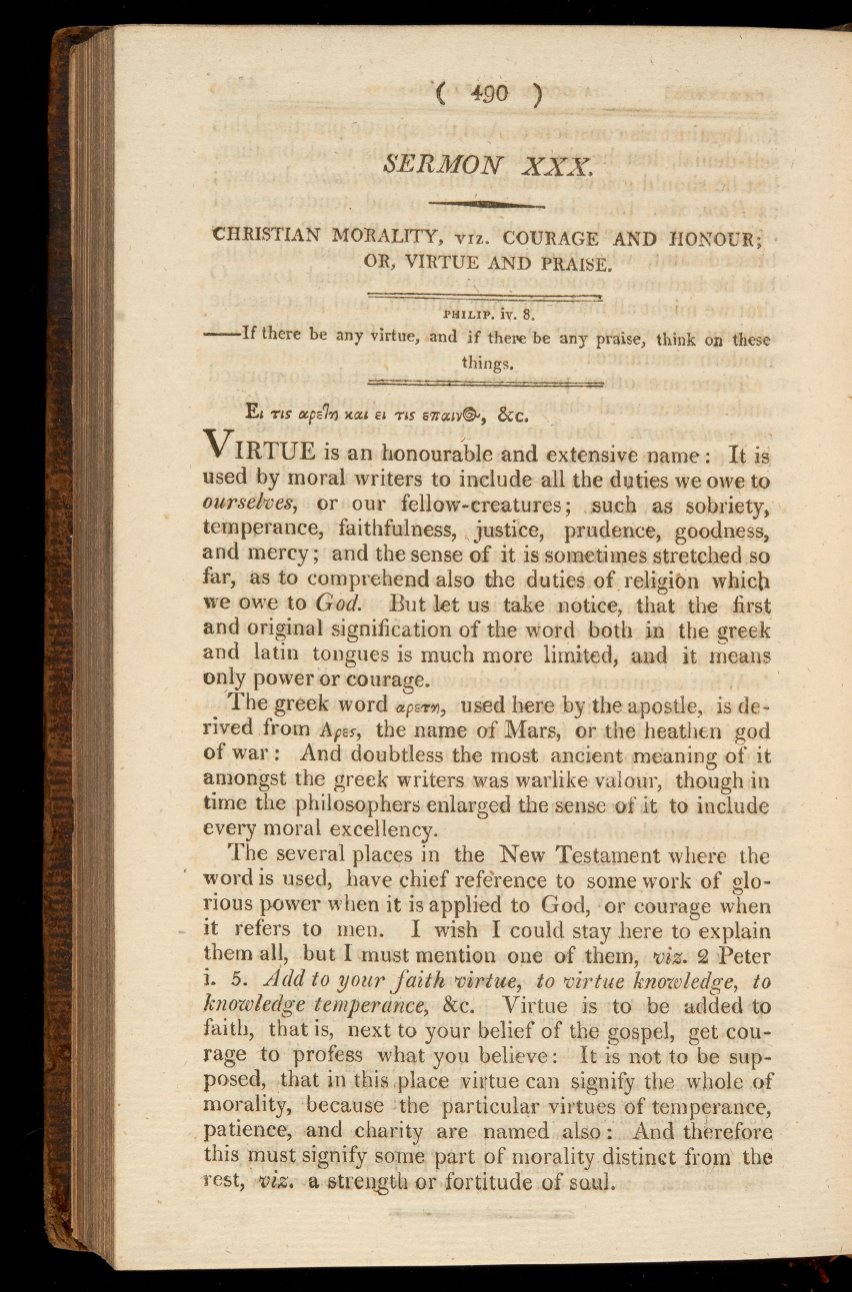

(
49O
)
SERMON
XX
.
CHRISTIAN MORALITY,
viz.
COURAGE AND HONOUR;
OR,
VIRTUE AND
PRAISE.
PHILIP. iv.
8.
If
there
be any virtue, and
if
there
be
any
praise,
think
on
these
things.
Ea
rs
ape7li
xat
E;
t;c
s7tzni
,,
&c.
VIRTUE
is
an
honourable and extensive name
:
It
is
used
by
moral writers to include
all
the duties
we owe
to
ourselves,
or
our
fellow-
creatures;
such
as sobriety,
temperance,
faithfulness,
justice, prudence,
goodness,
and
mercy
;
and
the sense
of it
is
sometimes
stretched
so
far,
as to
comprehend
also
the duties
of
religion which
we owe to God.
But let
us
take
notice,
that
the first
and
original signification
of
the word both
in the
greek
and latin tongues
is
much more limited,
and it
means
only power or courage.
The
greek word
ape-rn,
used here
by
the apostle,
is
de-
rived
from
ApEs,
the name
of
Mars,
or
the heathen god
of
war
:
And doubtless the most
ancient meaning of it
amongst
the greek writers
was
warlike valour, though in
time the
philosophers enlarged the
sense
of it
to
include
every
moral
excellency.
The
several places
in
the New
Testament
where
the
word
is
used, have
chief reference
to
some
work
of
glo-
rious power
when
it
is
applied
to God,
or
courage when
it
refers to
men.
I
wish
I
could
stay
here
to
explain
them
all,
but
I
must mention one
of
them,
viz.
2
Peter
i.
5.
Add
to
your
faith
virtue,
to
virtue
knowledge,
to
knowledge temperance,
&c.
Virtue
is
to be
added to
faith,
that
is,
next to your belief
of
the gospel, get
cou-
rage
to profess
what
you
believe:
It
is
not
to
be
sup-
posed,
that
in
this
.place
virtue
can
signify
the
whole
of
morality, because the
particular
virtues of temperance,
patience, and charity are named
also
:
And
therefore
this
must
signify some
part
of
morality distinct
from the
rest, viz.
a strength
or fortitude
of
soul.

















